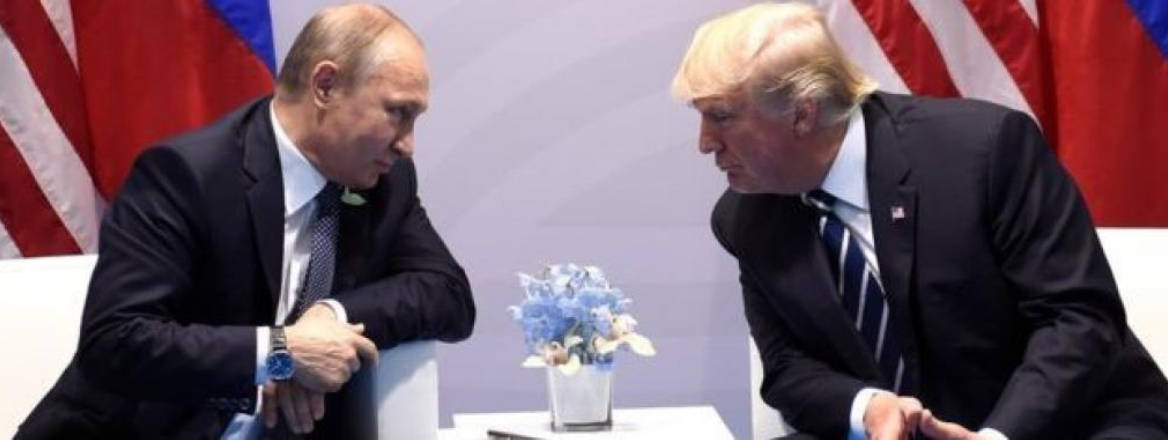Russia’s relations with the United States are at their nadir, and the new year appears to offer no immediate breakthroughs. The US–Russia diplomatic relationship has been difficult for years, but has been particularly exacerbated by allegations of Russia’s involvement in the 2016 presidential elections. As the Mueller inquiry into these allegations continues to reveal information in the coming months, there is unlikely to be much scope for political rapprochement; most recently, the US Senate released two reports on Russia’s influence during the elections, detailing how Russia sought to sow doubt about the integrity of the US electoral process. In the US, few issues unite Republicans and Democrats more than their inherent mistrust of Russia; any officials’ real or perceived links to Russian businesses are inherently viewed as suspicious.
However, Russia’s actions after the G20 Summit last November were one of the most illuminating events of the past year. While the Summit was primarily focused on trade deals, it is also shot through with political symbolism. As with many events of this kind, observers were keen to highlight the political snubs that were laid bare; the Summit took place against the backdrop of growing tensions between Russia and Ukraine in the Azov Sea, culminating in an incident on 26 November, when Russian naval ships fired on and then impounded Ukrainian naval vessels. As a result, US President Donald Trump cancelled a scheduled meeting with Putin, a decision which Putin maintained he only learned of through a tweet. Yet while the cancellation of the meeting between the two leaders was clearly a political snub, Putin’s response revealed much about how Russia views its place in the world.
Putin was less concerned with the fact that the meeting had been cancelled, and more irritated by the manner in which news of this was conveyed to him, via social media. This was taken as a sign of serious disrespect, with Kremlin spokesman Dmitry Peskov pointedly noting that the Russian side had not received any ‘official‘ information about the status of the meeting. It was clear that Russia considered the US’s actions to be an affront, not the sort of behaviour of a country that viewed Russia on an equal footing.
After the G20, Putin held a press conference where he answered questions from journalists, and a particular moment stood out. One journalist offered a (scripted) comment, claiming that he had watched an American film in which a Russian president had been taken hostage at a Russian Arctic military base in a palace coup. The journalist noted that in the film, the Russian president was rescued by the commander of a US submarine. Putin responded with derision, maintaining that US submarines did not have the ability to penetrate a Russian military installation, citing the recent Azov incident in which Ukrainian vessels (whose patrol boats were provided by the US) had been unable to access the Kerch Strait.
This strange exchange was naturally designed to be a dig at US military capabilities. But its positioning – the last question before the conference concluded – meant that Russia’s takeaway from the G20 was of disdain toward the US. While Russia’s criticism of the US is not new, it is rare for Putin to rise to bait in this way, and may indicate that he was more frustrated by Trump’s actions than it appeared.
Catch-22
Russia is caught between a serious desire for political recognition from the West, and a profound sense of disappointment about its inability to achieve this objective. Vladislav Surkov, a senior Kremlin aide, penned in April 2018 an article in the Russia in Global Affairs magazine entitled ‘The Solitude of a Half-Blood’; Surkov has significant influence over Russia’s domestic political environment, and so this article is in many ways reflective of how officials view Russia’s geopolitical position. Although Surkov’s article was likely a response to the US’s introduction of sanctions several days earlier on several Russian officials and businesspeople with ties to Putin, his contribution essentially drew up boundaries for Russia’s relationship with the West in general, and questioned how far the relationship could ever go.
Surkov maintained that Russia’s overtures toward the West and its institutions were over, while also claiming that ‘solitude’ would not mean complete diplomatic isolation. He noted the importance to Russia of promoting trade and attracting investments from the West – promoting foreign investment has always been important to Russia, despite the Western sanctions – but with realistic knowledge of the limits of the relationship. Surkov’s choice of words was revealing – he referred to Russia as a ‘half-blood’ country whose identity he claims is ‘wandering’, between East and West and ultimately cast out.
This highlights Russia’s sense of disillusionment with the West; the Russian authorities maintain that the West and the US in particular seek to intervene in political processes in eastern Europe, and that structures such as NATO are consolidating troops and hardware close to Russia’s borders. But at the same time, Russia is eager for Western acknowledgement of the important role that Russia plays in global affairs.
Where Are We Going?
Since the end of the Soviet Union, the theme of Russia and the West’s diplomatic relationship has been one of cycles of thawing diplomatic relations, followed by intense disillusionment. Russia viewed the so-called ‘colour revolutions’ in Georgia and Ukraine in the early 2000s as sponsored or at least strongly supported by the West and the US, which marked a period of serious mistrust. Putin’s 2007 speech at the Munich Security Conference, when Putin strongly criticised the US for undermining global stability and intervening in other countries’ affairs, was widely viewed as the critical turning point in the US–Russia relationship.
But Russia is not diplomatically isolated, and the era of rival Cold War ideologies is past. Russia is now plugged into the global economy, exemplified by the immediate effect on global aluminium prices in April 2018, when the US Treasury Department sanctioned Oleg Deripaska, owner of Rusal, one of the largest aluminium producers in the world. Despite Russia’s assertive actions that have exacerbated tensions with the West, Russia cannot afford to be locked out of political processes, and the West cannot afford this either.
The US and Russia will continue to test each other throughout 2019, and there is unlikely to be any scope for a political rapprochement. Aside from the ongoing Mueller inquiry in the US, other outstanding issues will exacerbate the relationship in the coming year, including the US allegations that Russia has violated the Intermediate-Range Nuclear Forces (INF) treaty (which prompted the US to announce its withdrawal from the treaty); the detention of a Russian gun rights activist in the US in July 2018 on charges of espionage; and the subsequent arrest in Russia in late December of a former US marine, on charges of espionage. As these diplomatic spats continue to play out, they could jeopardise the potential Putin–Trump meeting in 2019 that Trump had proposed last October. Any cancellation of that prospective meeting would only fuel the Kremlin’s narrative that Russia is destined for years of political solitude.
The views expressed in this Commentary are the author’s, and do not necessarily represent those of RUSI or any other institution.
WRITTEN BY
Emily Ferris
Senior Research Fellow, Russian and Eurasian Security
International Security


